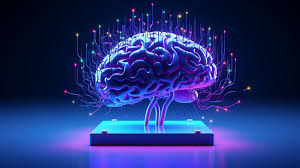Artificial intelligence (AI) is one of the most exciting and rapidly evolving fields in technology. For beginners looking to break into AI, enrolling in an AI course is a great first step. However, starting this journey can be daunting without knowing what to expect. This article will guide you through what to expect from an AI course for beginners and provide tips on how to succeed.
1. Understanding the Basics of AI
As a beginner, your AI course will start with the fundamentals. You will learn what AI is, its history, and its key concepts. This foundational knowledge will help you understand how AI works and its various applications. Expect to learn about machine learning, neural networks, natural language processing, and computer vision. These topics will provide you with a broad understanding of the field and prepare you for more advanced studies.
2. Introduction to Programming
Programming is an essential skill for anyone interested in AI. Most AI courses for beginners include an introduction to programming languages commonly used in AI, such as Python. Python is popular due to its simplicity and the availability of powerful libraries for AI development. You will learn basic programming concepts, how to write code, and how to use libraries like TensorFlow and Scikit-learn.
3. Hands-On Projects
One of the most effective ways to learn AI is through hands-on projects. Your AI course will likely include practical assignments where you apply what you’ve learned to real-world problems. These projects will help you gain practical experience and reinforce theoretical concepts. Expect to work on projects such as building simple machine learning models, creating chatbots, or developing image recognition systems.
4. Learning Data Handling and Preprocessing
Data is the backbone of AI, and learning how to handle and preprocess data is a crucial skill. In your AI training, you will learn techniques for collecting, cleaning, and transforming data. This includes handling missing values, normalising data, and splitting data into training and testing sets. Mastering data preprocessing will ensure that your AI models are built on high-quality data, leading to better performance.
5. Understanding Machine Learning Algorithms
A significant part of your AI course will involve learning about machine learning algorithms. You will explore various types of algorithms, such as linear regression, decision trees, and clustering. Understanding these algorithms and knowing when to use them is essential for developing effective AI solutions. Your course will teach you how to implement these algorithms in code and evaluate their performance.
6. Getting Familiar with AI Tools and Libraries
AI development involves using various tools and libraries that make the process more efficient. Throughout your course, you will become familiar with popular AI tools and libraries like TensorFlow, Keras, PyTorch, and Scikit-learn. These tools provide pre-built functions and modules that simplify the development of AI models. Learning how to use these libraries effectively will speed up your development process and improve your productivity.
7. Learning from Mistakes
As a beginner, it’s important to understand that making mistakes is part of the learning process. You will encounter challenges and errors while working on projects, but these experiences are valuable learning opportunities. Don’t be discouraged by mistakes; instead, use them as a chance to improve your understanding and skills. Your AI course instructors and peers can provide guidance and support to help you overcome obstacles.
8. Building a Strong Mathematical Foundation
AI relies heavily on mathematical concepts, particularly in areas like statistics, linear algebra, and calculus. Your AI course will cover the necessary mathematical foundations needed to understand and implement AI algorithms. Building a strong mathematical foundation will enhance your ability to grasp complex AI concepts and develop more sophisticated models.
9. Engaging with the AI Community
Joining an AI course or aiming for a PG in Artificial intelligence course also provides an opportunity to engage with a community of like-minded individuals. Participating in forums, discussion groups, and study sessions can enhance your learning experience. Networking with peers and instructors can provide additional insights, resources, and motivation. The AI community is vibrant and supportive, offering numerous opportunities for collaboration and knowledge sharing.
10. Staying Curious and Continuous Learning
AI is a rapidly evolving field, and staying up-to-date with the latest developments is crucial. Cultivating a mindset of continuous learning will help you keep pace with advancements in AI technology. Read research papers, attend webinars, and participate in online courses to expand your knowledge. Staying curious and eager to learn will ensure that you remain relevant in the ever-changing AI landscape.
Conclusion
Embarking on an AI course for beginners is an exciting journey that opens up a world of possibilities. By understanding what to expect and following the tips provided, you can maximise your learning experience and set yourself up for success. From grasping the basics of AI and programming to working on hands-on projects and engaging with the AI community, every step you take brings you closer to becoming proficient in AI. With dedication, curiosity, and continuous learning, you can thrive in the field.






